Iulian Postelnicu talks about his characters, human beings and his most personal beliefs
We met with Iulian on an autumn day in Radovanu – a Romanian village situated one hour and a half from Bucharest, where we had the photoshoot, followed by a long discussion about his roles, emphasising mostly on his latest one – Ilie, the protagonist in Paul Negoescu’s latest film, Man of Deeds. I was quite nervous for several reasons. First of all, we were meeting in my father’s childhood home, where I hadn’t been in 6 years, since my grandmother passed away. We didn’t have any time for a recce, so we had no idea what to expect. We organised everything over the phone, with the help of my aunt. And most important, I had a dozen of questions for Iulian and no idea if we will have time for all. I didn’t know him, if he’s open enough to talk freely with a journalist. I discovered a wisecracking guy who always sees the full half of the glass, even when things go utterly wrong. He says it’s because he’s lazy. I think it’s a very good quality and one that has brought him where he is today. Iulian answered bluntly to all of my questions. I knew I liked the actor very much and I was happy to discover an equally interesting man. If this interview is good enough to be one of the memorable ones, I don’t know. What I do know will always be a memorable memory for me, is taking this interview in my old’s grandmother kitchen, next to her stove, eating a piece of home baked bread with Iulian.
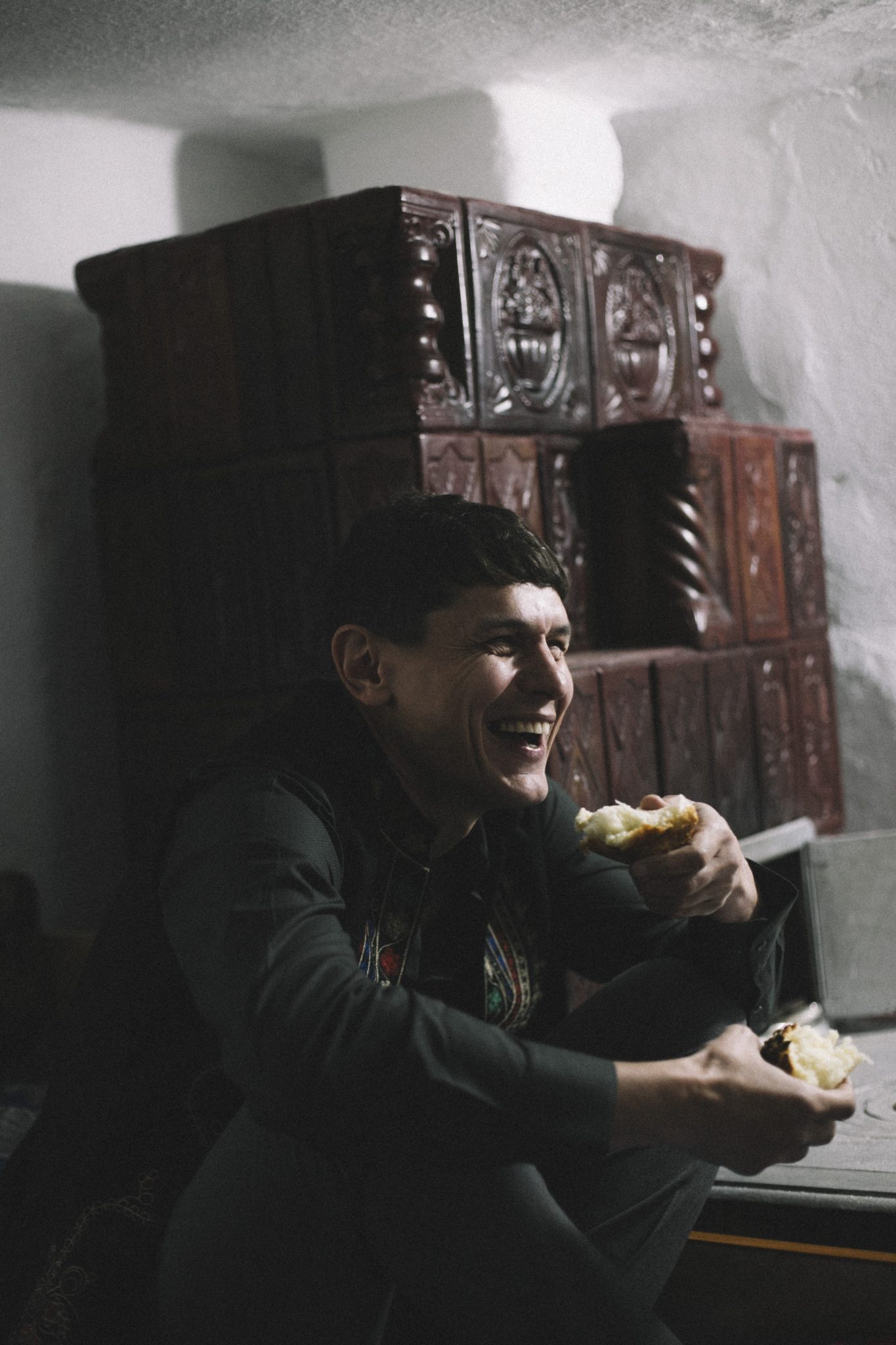
ABOUT HIM. HUMAN BEINGS. BELIEFS
Iulian, what do you think are your flaws?
I have all of them (laughs). From being lazy to being selfish … too many come to mind.
And how do you reconcile with them?
I accept them as long as they don’t affect those around me. Otherwise, if I realize I’m doing harm, I try to control them, but it’s not something conscious and systematic. Like it or not, you have to adjust them.
Do you consider yourself a lucky man?
Yes. On the way here, I listened to Scott Galloway’s podcast and he was talking about success, about people who became successful and began to believe that they’re entitled to it, forgetting how they got to this point. By chance, most of the time. It’s mostly about luck. I’ve always been lucky. When I finished eighth grade, my mother insisted that I go to the best high school in Focșani, where I ended up in the best class, with the best math teacher. I was a scoundrel in a good class, but want it or not, you feel the need to catch up with their standard. Then having Dem Rădulescu as an acting teacher, or the fact that I chose not to go work in a theater [i.e. he was offered a job in Târgoviște].
Being optimistic probably helped too.
Yes, indeed. I think I got it from my father. But it often translates into laziness, a “don’t worry, it will be okay” type of optimism. Sometimes it helps, other times it’s better to go into panic/crisis mode. That’s when you seem more motivated to act.
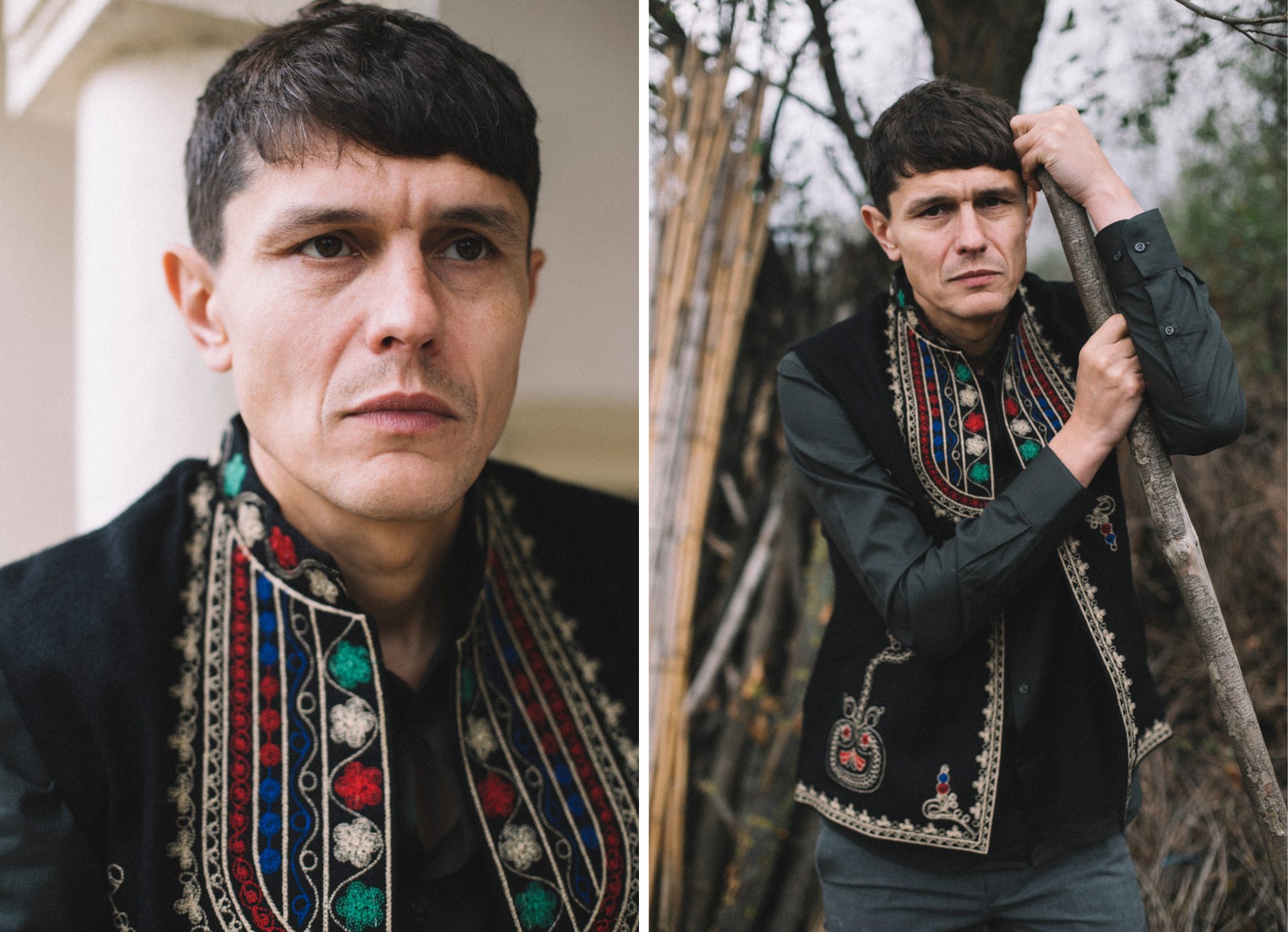
I’m reading a great book right now – The Laws of Human Nature, which says that people often act on emotions triggered by money, power and the need for attention, and so the chaos in the world (economic crisis, wars, diseases, etc.) has a lot to do with that. What kind of people do you want to have around you? What should they be like, in your opinion?
First of all, it’s important to show kindness and be open-minded towards other people’s faults (where appropriate). To have empathy and understanding of the other’s situation. Then knowledge. Which finally leads to all the others – being able to laugh and open up to people without being judged or criticized.
You finished film school when you were 22, but had your breakthrough years later – your first leading role came with Arrest (2019, dir. Andrei Cohn). During all this time, you’ve written a lot of comedy, you’ve also done a bit of stand-up, as well as events and commercials. You’ve tried everything. Have you ever felt like you are struggling, want to give up, or leave the country?
I did pretty well in film school, I really liked it. And I was quite good (laughs). But there were some hard times, too. I fell for everything our so-called teachers told us, which was absolute rubbish. They were in a position of authority and I was still green, so I didn’t have the nerve to challenge their methods. I was overwhelmed by the things they would ask of us. It was brutal. I completely support the students now reporting all the emotional and verbal abuse – I’ve seen it all. There are a lot of morons teaching. It was very hard, they were preaching some nonsense that was totally out of place. There were times when I wanted to quit. What a hellish ordeal. At one point, I had a conflict with the class assistant, who was upset that I questioned his method and failed me. Someone stood up for me and I was off the hook eventually. But here we are, 20 years later, and I still have hard feelings about it. So, yes. I did want to quit. As for leaving the country, the idea crossed my mind later. About 2-3 years ago, when I thought that I should work on my English and then I would figure out what to do next. And that’s because there are few projects here and they come several years apart.
And what do you do then, when you have such long breaks between roles?
I write, but I also waste a lot of time.
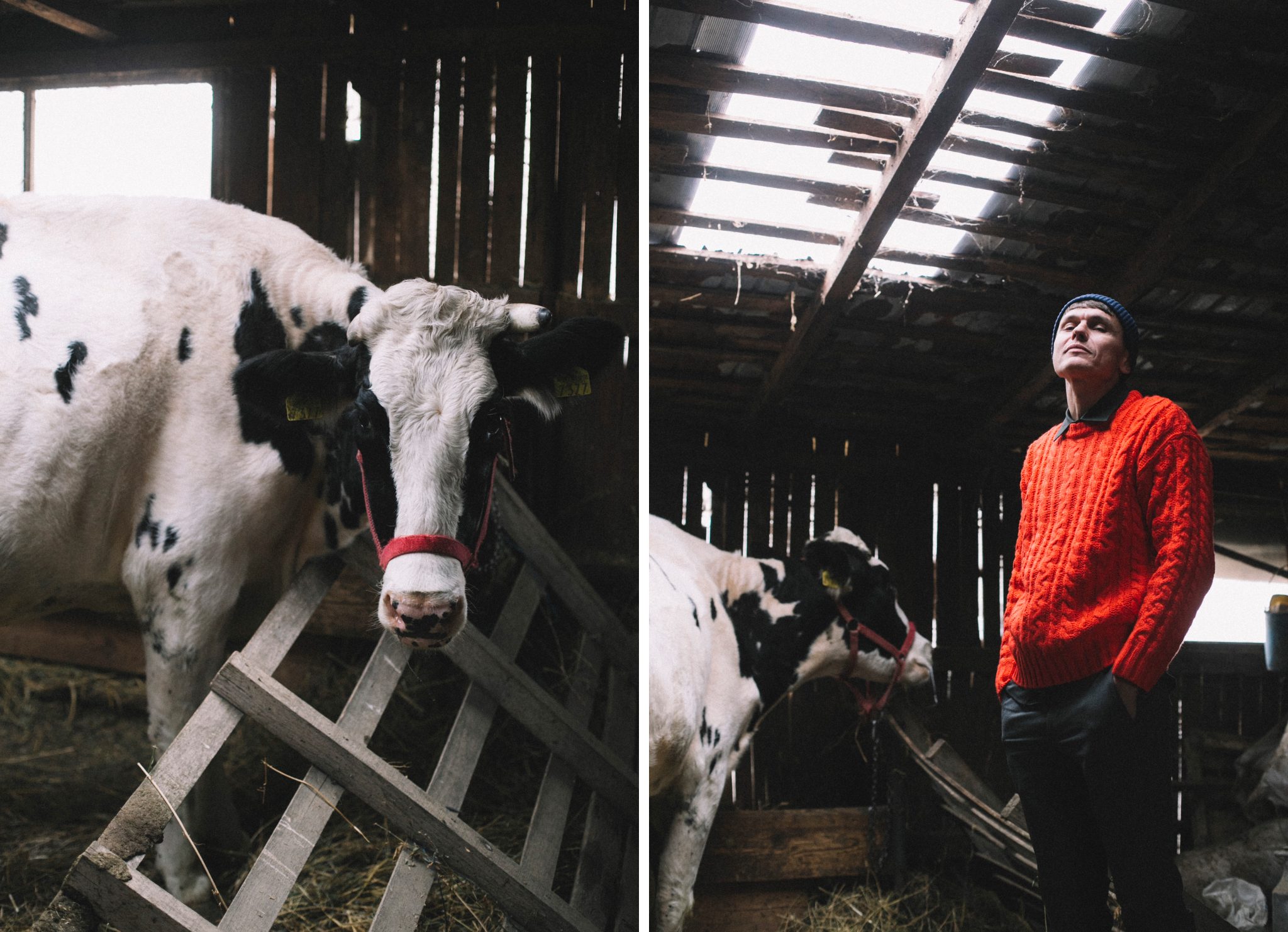
ABOUT ARREST
You were classmates with Alexandru Papadopol at the UNATC, you’ve remained friends after that and you performed together in Arrest. Was it easier for you to work together?
I guess so. We rehearsed a lot, just the two of us. We would meet and go through the whole script. We knew the whole thing word-for-word, and it wasn’t a few pages, more like 120. (laughs)
I think it also made it easier for Andrei [i.e. the director], the fact that we worked like that. Given that it was such a huis-clos story, taking place in a cell, with two main characters.
Do you remember how you felt when you first saw the scene in the shower on screen, with Dinu naked, beaten and covered in blood?
I first watched the film as someone who worked on it. I was rather focused to see if the kicks looked real, I knew the distance between my leg and his head. Then, over time, I started watching it as a viewer, and it’s quite a shocking scene, yes.
I read somewhere that Andrei Cohn chose you after seeing you in One Floor Below. How was the collaboration with him?
I first met him in 2015, at the premiere of his film Back Home, when I went to congratulate him. Then we met some years later, at a reading for Arrest. He is such a gifted man. First of all, he is kind, respectful and well-read. And he is incredibly talented – he has an eye for detail and he manages to find something good even in the bad takes, I’m amazed by that. Whenever we had any arguments, it was just a matter of communication. He was saying things his way and I perceived them differently, when in fact we were speaking the same language using different words. Once I figured all that out, it went great. We’ve remained friends. I think. (laughs)
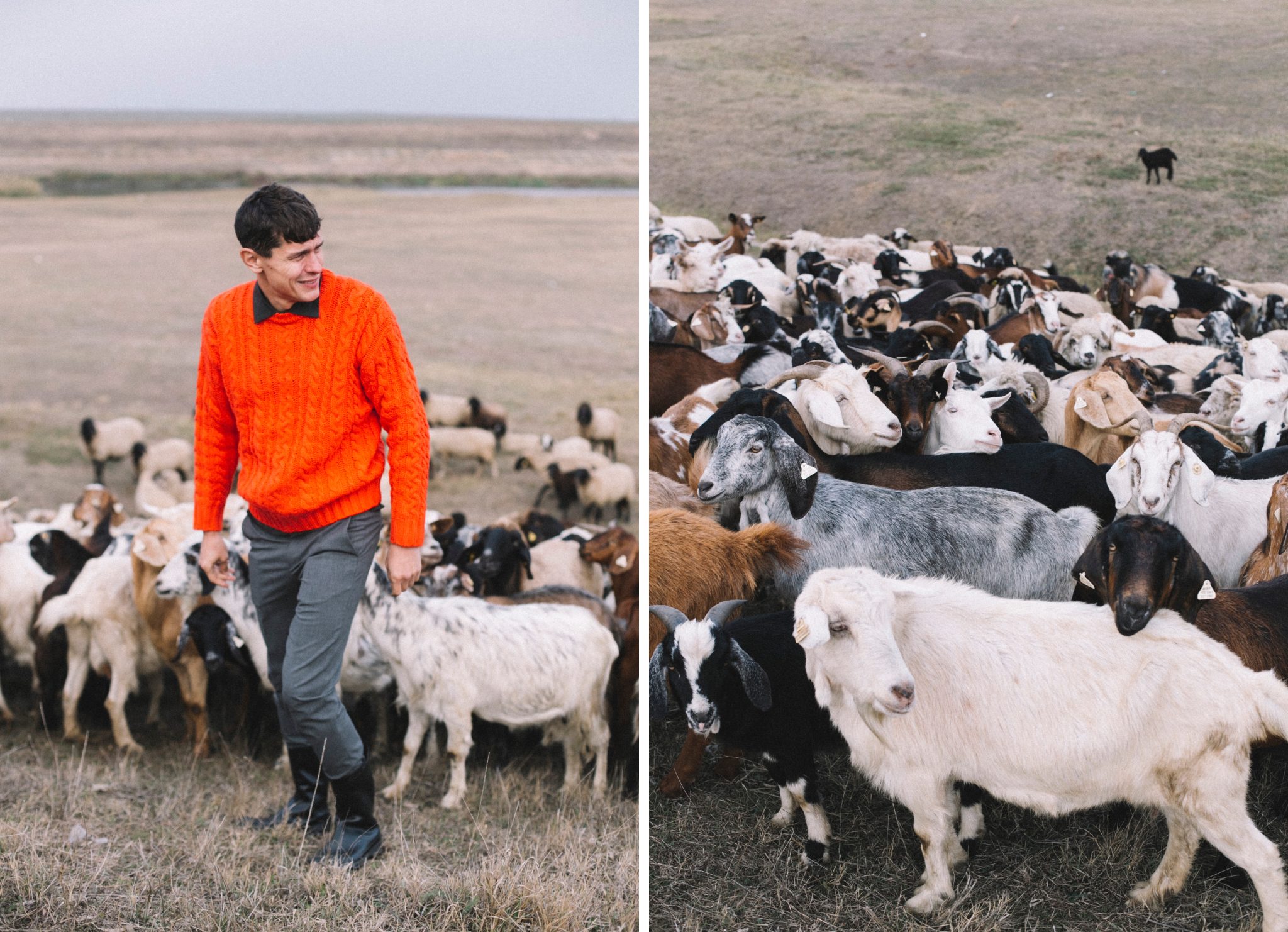
ABOUT MEN OF DEEDS
Since you also write, and you do it very well, I’m curious, what did you like most about this script?
The comedy-drama combo. It’s very close to reality but without being moralizing, and it’s funny but not in a meaningless way. It’s well-balanced and coherent. Not too much and not too little.
I hear you’re selective with the roles you play.
It’s just a front. (laughs)
Really? I see it as a quality.
That’s why I’m so good at it. (laughs)
What convinced you the most about your character Ilie in Men of Deeds?
First of all, he is the protagonist; being offered the lead part is always flattering. Second, he is a colorful character, and that’s something that serves you as an actor – you have the chance to show what you can do. Then, I went through all possible states. I was moved, I was annoyed, and I laughed – both with him and at him. And I thought that if I play him right, the audience will go through the same emotions I experienced when I read the script.
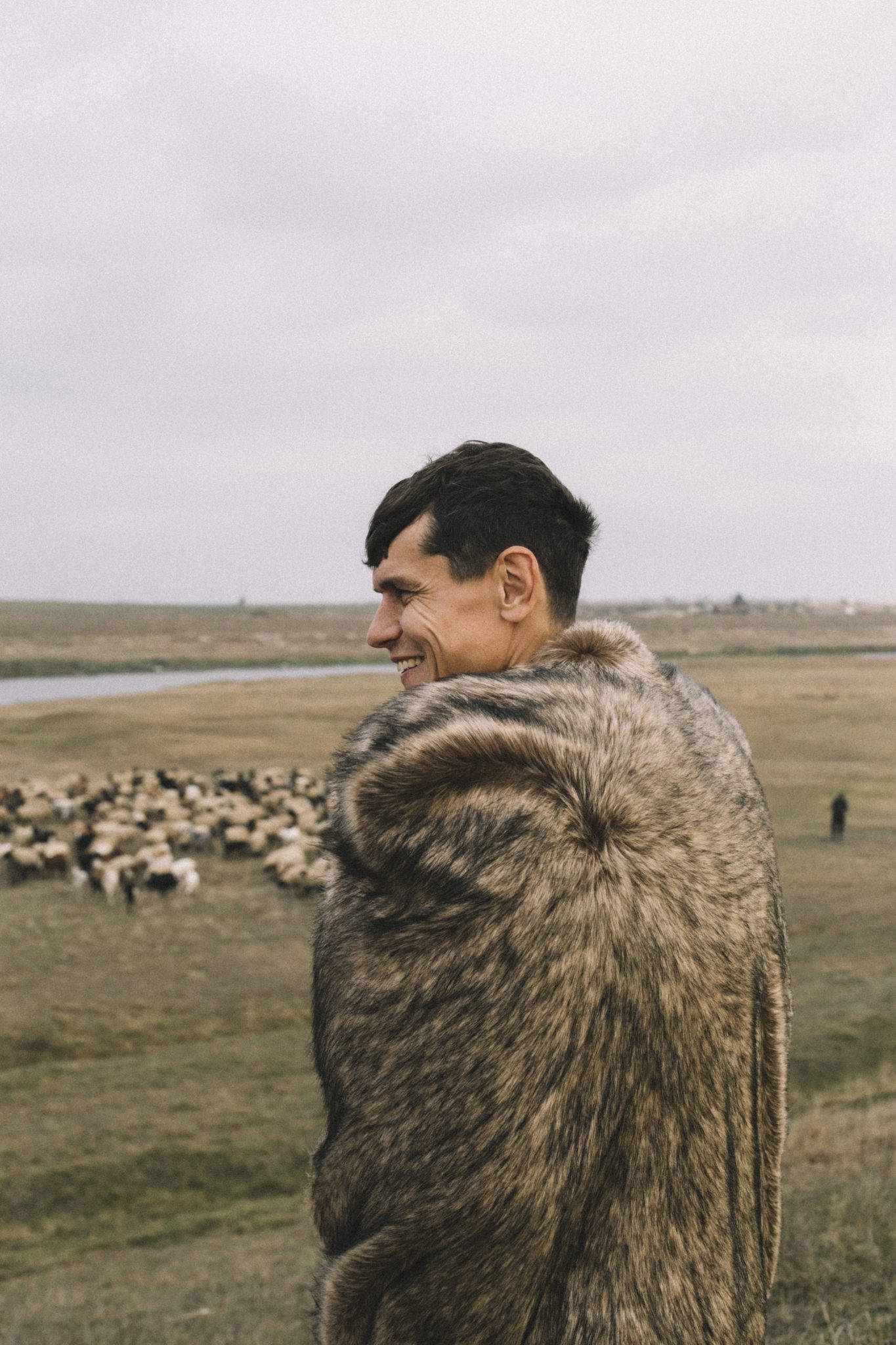
Tell us something about Ilie that the film doesn’t.
I wanted to fill in the gaps that are not covered by the script. To know who he is, where he is, who he was with, whether or not he has children or parents, what school he went to – to round off the character. I often draw from my own biography, and what you get is a composite of truth and fiction, which is easier to manage. Among the things I wrote down about Ilie are things that are more of an intimate nature – he is a man who had a wife at one point, but since then he has had no other prospects, the town he lives in has little to offer in that regard, and the relationship with Cristina, you can only imagine how dirty it gets in his mind.
And what would you say to Ilie if you met him? What advice would you give him?
I wouldn’t want anything to do with him, I don’t think I could help such a man. Maybe we’d have a beer and I’d listen to him. Maybe I’d tell him that I’m the son of some big shot just to f**k with him. (laughs)
Was it difficult to shoot the shootout scene? You hardly see something like that in Romanian films.
We had three days to shoot that scene, but it was really windy on one of them and it was impossible to do it. I’m amazed that the film looks so bright, given that we shot in weather like this, cold and rainy. We had 12 bullets in total and almost ran out, so they had to order six more from Bucharest. You could hear us yell on the set “don’t shoot! don’t shoot” (laughs). Oh, and my gun jammed for real. So it wasn’t planned, as it happens in the scene.
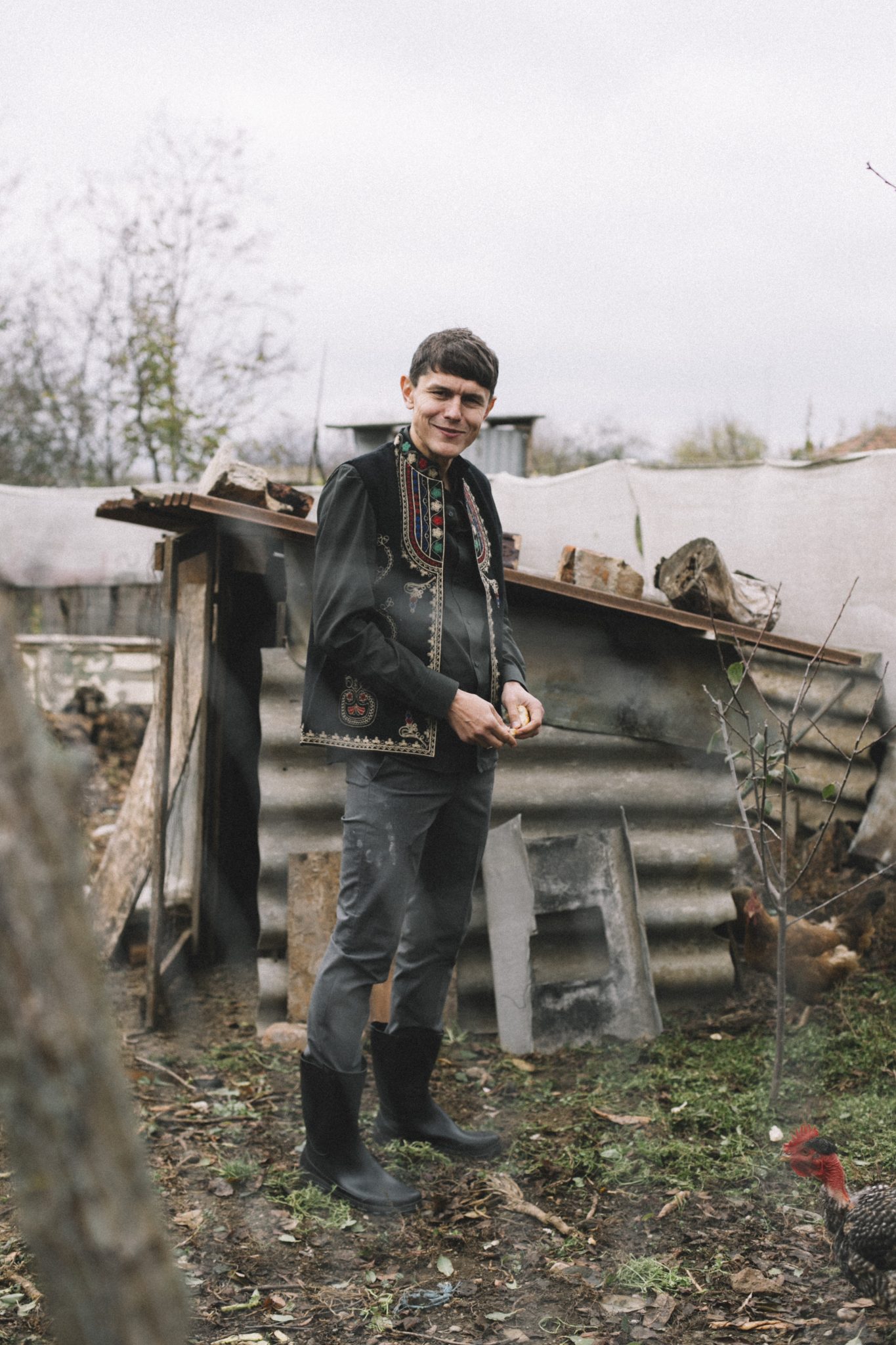
How different is Focșani from Botoșani in terms of customs and traditions? Do you think there is a different mentality?
I don’t think so. Botoșani is smaller than Focșani and seems poorer. Otherwise, people are pretty much the same. Twenty years ago, there was a feeling of uneasiness around authorities, which I still notice today when I go home. Instead of being the other way around, they should be the ones to feel embarrassed for not doing their job. If civil servants really did their jobs, by all means, let them have the biggest salaries, but they still appear to be good for nothing.
And finally, what does this film mean to you?
Thank you, Paul [i.e. Negoescu, the director]. Thank you, Ana Drăghici [i.e. the director of photography]. Thank you, Anamaria Antoci and Ana Voicu [i.e. the producers]. Thank you to the whole team. (laughs)
Oameni de treabă is now screening in all Romanian cinemas.
Film producer and founder of ADFR, she dreamed since she was little of having a magazine one day. Alongside her job as editor-in-chief, she writes the interview of the month. She loves animals, jazz music and films festivals.


